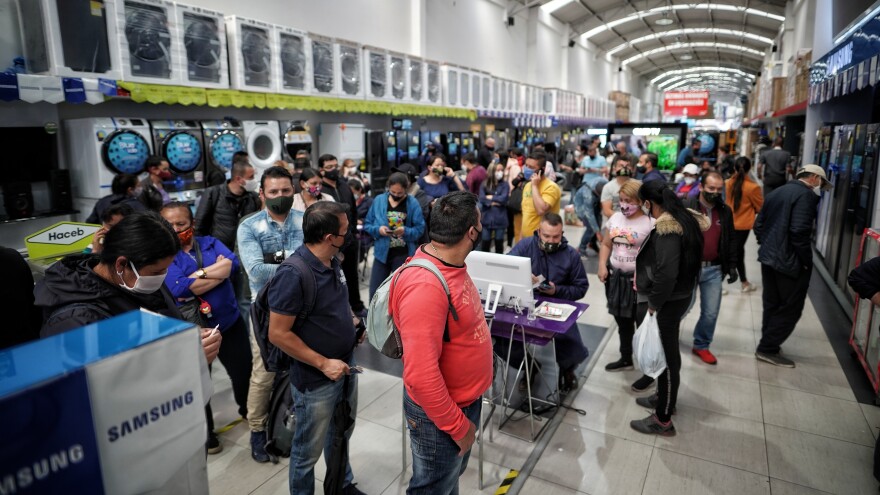After imposing one of the tightest coronavirus lockdowns in Latin America, Colombia is now searching for ways to jump-start its economy. One experiment is a series of tax-free shopping days, but critics fear they could turn out to be super-spreader events.
At a time when the country is facing a spike in COVID-19 cases, urging Colombians to flock to stores and malls "sends an erroneous message," said Bogotá Mayor Claudia López.
Sales tax in Colombia is a whopping 19%, so it was a big deal when the government designated three days this summer as tax holidays. The idea is to convince Colombians who had largely been confined to their homes for the past three months to venture out — and open up their wallets.
They did just that on Friday, June 19, the first of the three tax holidays. At many stores, mobs of shoppers turned out in a Black-Friday-like frenzy. Retail sales jumped five-fold, according to the Colombian government, prompting President Iván Duque to declare the event a roaring success.
But the crowds were so large that social distancing went out the window and officials had to close down 86 stores nationwide. Bogotá city official Luis Gomez went into one crowded electronics store and personally ordered customers to leave.
"People need to understand that it's not worth risking their lives for a discount," he told reporters.
Colombia has registered more than 2,500 deaths from COVID-19, according to tracking by Johns Hopkins University. That is far fewer than neighboring Brazil, Peru and Ecuador. Still, the virus is surging in Latin America and health officials in Colombia say it's no time to slack off.
Indeed, the shopping spree came just as Colombia registered its highest daily rate of new infections and deaths. That prompted López, the Bogotá mayor, to label the spending free-for-all "COVID Friday." She suggested the tax holidays should be for online shopping only.
Guillermo García, a Bogotá lawyer who stayed home for the tax holiday, said it makes no sense for the government to first promote extreme caution through tight lockdown measures, only to then turn around and promote crowding in the name of boosting the economy.
"I think all the sacrifices we made over the past three months will be lost," he said.
So far, there are no plans to cancel the two remaining tax holidays scheduled for July 3 and July 19.
Copyright 2021 NPR. To see more, visit https://www.npr.org.

